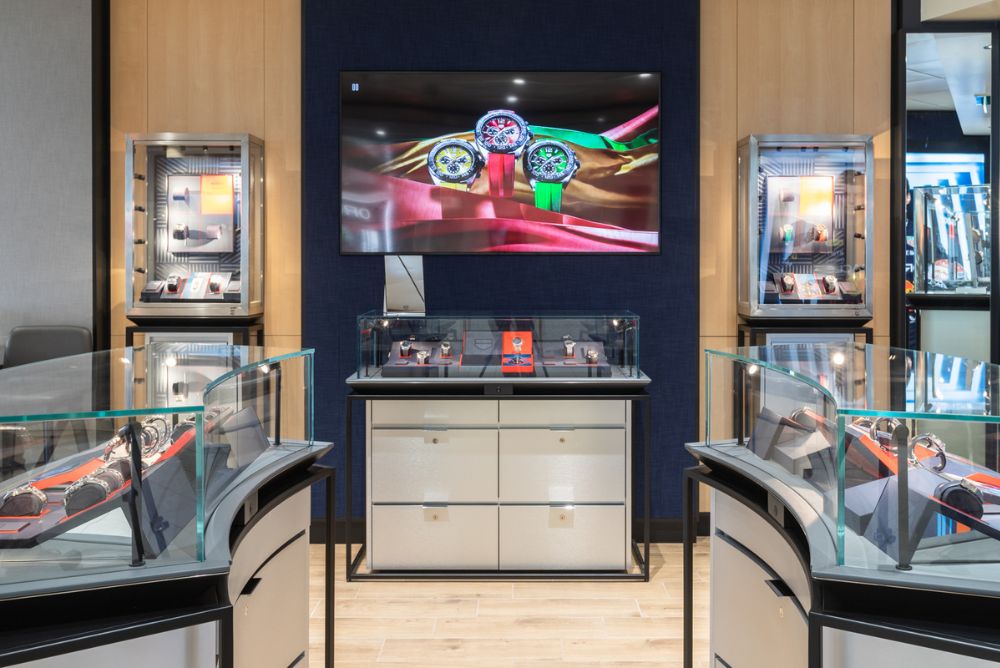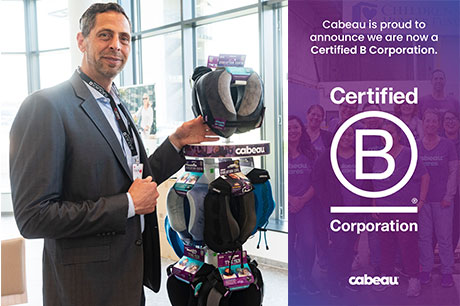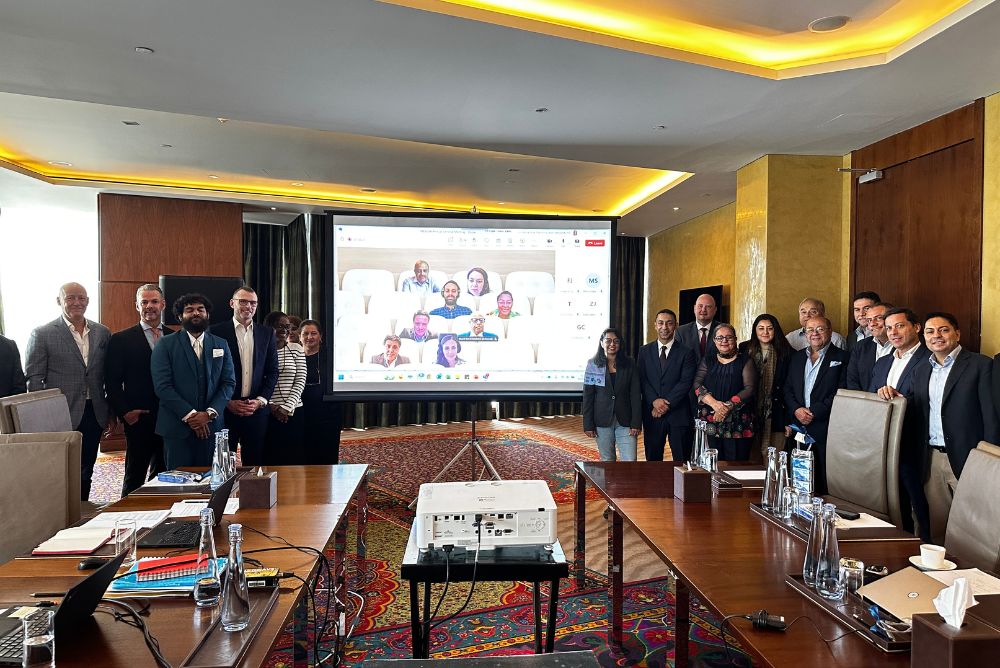China e-com law ‘yet to register’ on duty free sales
By Luke Barras-hill |

Lotte Duty Free registered sales of $3.8bn in 2018 at its main Seoul downtown store.
China’s new e-commerce law is showing no real adverse effects on South Korean duty free and travel retail revenues, early indications from retail sources suggest.
Operators continue to eye a future dent in Daigou (shuttle trader) sales – a phenomenon that has emerged as a lucrative source of income – following a law that became effective last month to regulate online merchandising and provide consumers with increased protections.
However, despite the industry remaining vigilant, several South Korean travel retailers have told TRBusiness any reported detrimental impacts on duty free have yet to be felt.
“It seems that the new e-commerce law implemented in China has not had any material impact on Korean duty free stores yet,” confirmed one source. “The Korean duty free market is continuously monitoring the situation.”
TOURISM STRENGTHENING
Another source admitted that while growth may stutter due to a combination of the new law and pressure on China’s domestic economy, South Korea’s travel and tourism market vitality will act to offset any downturn in Daigou sales.
“With over one million customers and distinguished merchandise, we believe the impact on the duty free market will be limited,” they noted.
“We’ve been communicating with clients from Chinese-speaking countries through diverse channels. We have secured customers in partnership with Chinese influential online platforms such as WeChat and Ctrip; this year, we have improved customer accessibility by creating a membership mini-app within WeChat.”
The e-commerce law, which was passed in August, introduces new import VAT and consumption tax rules on cross-border purchases, which invariably affects overseas Daigou agents purchasing goods to re-sell, often through networks, in mainland China where they have typically circumnavigated high Chinese import taxes.

Star Avenue at Lotte Duty Free’s main downtown store in Seoul.
According to Global Blue, the new policy means transactions of RMB2,000 ($296) receive a 30% tax break (a rise from RMB1,000/$148), while the ‘personal use’ parcel tax on imported luxury items exceeding RMB5,000 yuan has also increased by up to 60%.
Among other stipulations, e-commerce operators will have to register as market entities and be subject to import taxes and tariffs, which could soften sales from Daigou unwilling to pay the higher costs to bring goods into China from popular duty free destinations like South Korea.
The law also presents a concern that the tax increases will have an adverse effect on cross-border e-commerce luxury purchases, aside the more typical core duty free sales.
S. KOREA DF SALES +31%
Despite these lingering concerns, South Korea’s DF&TR market posted an impressive showing in 2018, with total sales jumping by approximately 31% to KRW18tn ($17bn).
The result eclipses an earlier – and more modest – forecast of +20% made by TRBusiness last year in the face of what has been a sharp decline in Chinese visitors to South Korea due to THAAD that continued into the first quarter of 2018.
Indeed, the green shoots of recovery were only witnessed in March and while the growth turnaround appears to have been more pronounced since then, operators have been careful in their appraisals of any ‘full-blown’ recovery.
China’s downgraded growth rate to 6.8% this year together with its ongoing trade war with the US will also keep gazes fixed firmly on travel retail’s most important traveller market.

The Shilla Duty Free perfumes & cosmetics outlet at Incheon International Airport.
Notwithstanding this, a stimulus in visitor numbers to South Korea has exceeded what were conservative estimates of an additional $2.5bn to last year’s total.
Income from downtown duty and tax free shops rose by 100% to KRW15.3tn, with frontrunner Lotte Duty Free’s main Myeong-dong outlet growing sales by 22% to KRW4.2tn, a document seen by TRBusiness reveals.
Cosmetic sales continued it impervious grip on total category revenues, rising by 56.6% to KRW107.2tn,
“Despite the collapse of Chinese tourism in South Korea since March 2017, duty free sales have maintained their upward growth in the following periods,” observed one source.
“Although the number of Chinese entering Korea has still not recovered compared to 2016, the Korean duty free market recorded its highest sales last year. This is because Daigou, who have strong spending power, have already become one of the main customer groups.”
MORE DOWNTOWN LICENCES?
South Korea’s thriving downtown business has played a pivotal role in increasing duty free revenues, with the government and Korean Customs Service (KCS) eyeing further licence permissions in a move that would intensify the already heady competition between operators.
It is understood that an announcement on whether or not these will be granted could be made in the first half of this year – potentially in April or May – according to sources. The number of licences and where they will be allocated remains unclear.
“As the number of licences for downtown duty free stores in Seoul has increased dramatically in recent years, the competition between duty free operators is getting tougher,” said a source.
“In addition, business circumstances around the duty free business are changing fast because of many potential risks such as the China e-commerce law. In these circumstances, it is a concern that adding new licences could hinder the Korean duty free market’s global competitiveness.”

SM Duty Free shop in downtown Seoul.
One source says that maintaining domestic market share will be the biggest challenge for duty free retailers in South Korea this year.
Irrespective of the beauty category’s dominance, those retailers building strong band identities targeted at young generations will be the ones to flourish.
Commenting on the results, one retailer source said: “Last year, Korean duty free retailers’ performances were impressive. However, every operator is vigilant. No single operator is enjoying the moment since the current market conditions are not that optimistic – mainly because of China’s new e-commerce law.”
In a wider context, passengers numbers in Asia Pacific grew by 3.8% in November, according to the most recent results issued by ACI Asia-Pacific – a healthy indication of this aforementioned vitality tourism, although the pace of growth in China continued to slow.
Most of the major hubs returned single-digit growth, with the top three by passenger volume gains ranked as Chengdu (+5.6%), Xi’an (+5.9%) and Guangzhou (+3.2%).
Seoul Incheon International Airport, which TRBusiness can confirm released its tender for arrivals duty free shops today covering two stores in Terminal 1 and one at Terminal 2, registered the highest pax increase (+7.3%), partly due to its international mix.
All images (with the exception of Lotte Star Avenue) ©David Hayes.
JEDCO launches multi-category tenders at KAIA T1
Jeddah Airports Company (JEDCO KSA) has issued a request for proposals for several...
Alcohol insights: Conversion up, spend down in Q4
Conversion of visitors in the alcohol category in duty free has risen to 54% in Q4 2023,...
Heinemann Asia Pacific makes breakthrough in New Zealand at AKL
Heinemann Asia Pacific is set to enter the New Zealand market with three new retail concepts at...
-
 Asia & Pacific,
Asia & Pacific,JEDCO launches multi-category tenders at KAIA T1
-
 Asia & Pacific,
Asia & Pacific,Alcohol insights: Conversion up, spend down in Q4
-
 Asia & Pacific,
Asia & Pacific,Heinemann Asia Pacific makes breakthrough in New Zealand at AKL

In the Magazine
TRBusiness Magazine is free to access. Read the latest issue now.

 Trbusiness. The travel retail Trbusiness. The magazine for global retail and duty free professionals.
Trbusiness. The travel retail Trbusiness. The magazine for global retail and duty free professionals.





















